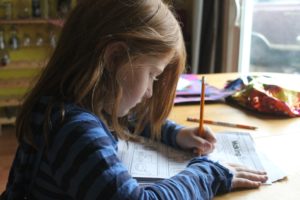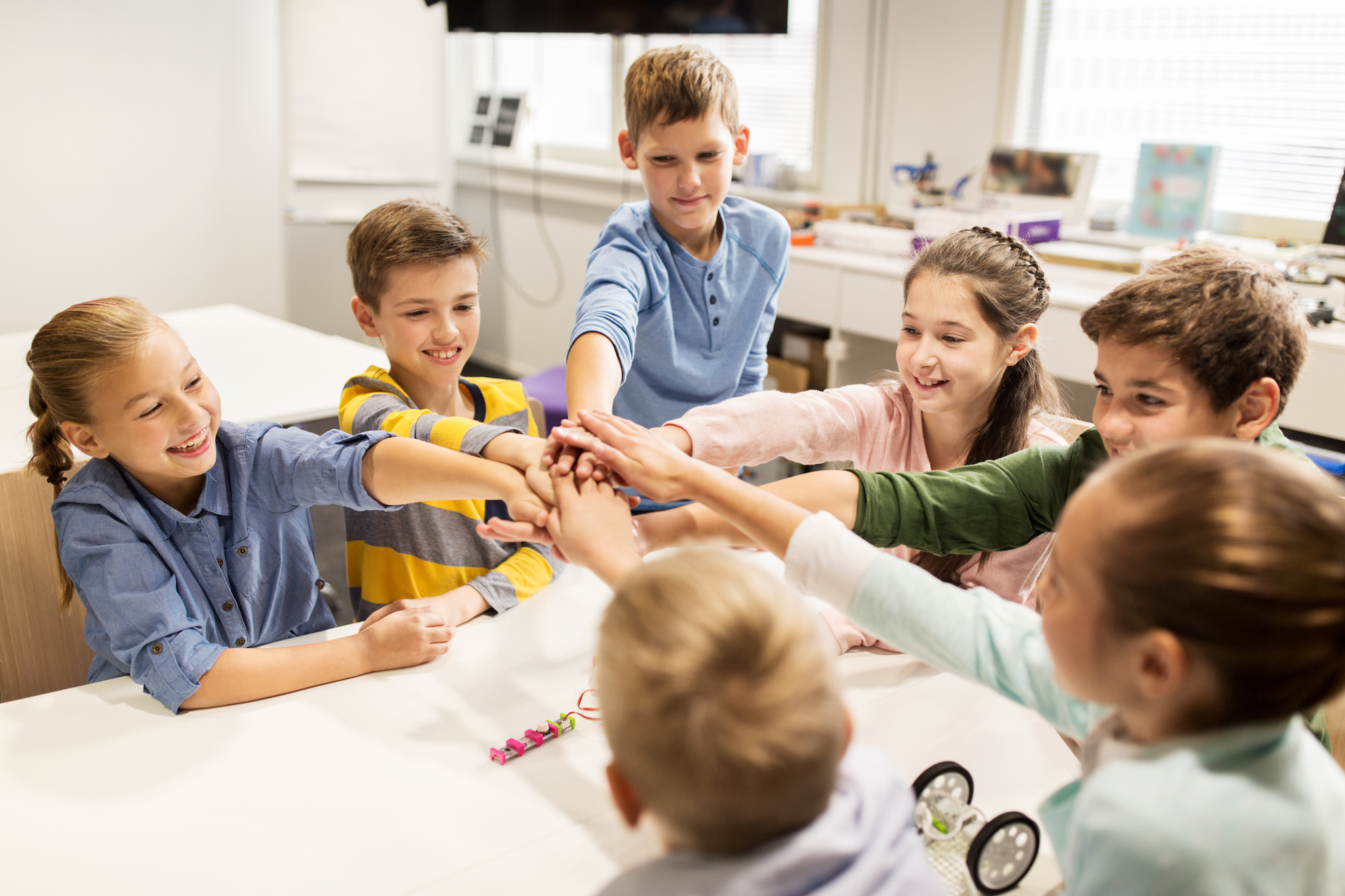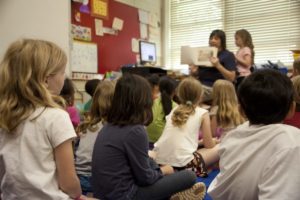
Addressing The Problem with Homework
Many educators are starting to recognize the problem with homework. And while homework is almost universal, there is little evidence that it actually works.

This month’s Innovative Educator Spotlight shines on Denis Sheeran, the Director of Student Achievement for Weehawken, NJ Public Schools, and a champion of authentic learning.
Denis remembers clearly his transformation from a “sage on the stage” to champion of student-centered learning.
“I started teaching high school math in 1999. Back then, as I was teaching it, I really wasn’t all that into the hands-on and conceptual math. I thought that I was getting concepts across, but the reality was that I was doing a lot of talking. They were just listening to information and repeating it back to me.”
Denis remembers a particular Algebra 2 lesson with some regret. “I had convinced myself the lecture I had prepared was so clear that my students couldn’t help but understand it. If they just listened, I believed all their questions would be answered by the end of class. So as soon as the kids got into the room, I told them to take out their notebooks and announced, ‘NO QUESTIONS!'”
“In hindsight, I realize that I was no better than a video on YouTube that day. I hadn’t created any connection between my students and that topic.”
It wasn’t until Denis began visiting other teacher’s classes that he started to see the limits of a lecture-based approach. “I went from classroom to classroom and saw teacher after teacher talking at students from the front of the room. Student after student was leaning on their hands, just waiting for class to be over. I realized that this needed to change.”
“At the end of a school day I heard a teacher complaining that his voice was so tired. Another teacher validated that by saying ‘of course it is, when you do a great job teaching, your voice is beat up at the end of the day.'”
“But that’s wrong! At the end of a day of excellent teaching, it’s the student’s voices that should be tired from discourse and learning out loud. The teacher’s mind should be exhausted from constant decision making, questioning, and listening.”
“That started to drive my passion for change, and ultimately led me to pen my first book, Instant Relevance. That was where I first made the case for finding unique learning opportunities in everyday circumstances.”
Once Denis began involving students more actively in his lessons, he sensed a clear change. Not only were students enjoying the learning experiences more, they were learning more, too. As a speaker and district administrator, he now helps other educators bring authentic experiences to their own classrooms.
The first step is to design learning experiences that are student-centered. “Lesson plans should always be made with the students in mind. If you could do the same lesson with an empty class you are doing it wrong.”
While student-centered learning considers how we teach, authentic learning asks us to consider what we teach. “Our kids are constantly growing and changing in environments unlike the ones we, as teachers, grew up in. So the first person who must be ready for change is the teacher. That’s where speakers and professional development come in. To share their insights into reflective teaching.”
However, Denis recognizes the challenge in making authentic learning the standard for every classroom.
“One of the greatest dangers in education is when someone says ‘We’ve always done it this way’ or ‘This works, so why mess with it?’”
“I had one teacher say that to me in my office. She had just shown me a sheet and on it was the list of geometry homework assignments…for the whole school year! When I asked how she knew these students would need that assignment in April, she told me that every year the kids always do.” Instead of adjusting to the needs of students, or incorporating new strategies, she was relying on what had always been good enough.
“I asked her to hand me her iPhone, and I put it in my desk drawer. We discussed what it would be like to do everything she does with her smartphone, but using the phone on the wall, the computer on her desk, and the school library.”
It’s hard to imagine that just ten years ago, few of us had iPhones. 15 years ago, no one did. To make progress, sometimes we need to look at the world and say, “It’s fine as it is. But how can it be better?”
It doesn’t take much to make the classroom experience more relevant. It starts with a willingness to consider that there’s a better way.
“Listen to your kids. If kids are distracted by something, don’t yell at them. Figure out how you can use the distraction as a tool for engagement in the classroom.”
“One day, a bunch of kids came running into class and were fooling around in the back of the room. They had this game where they were flipping a water bottle over to try to land it on its bottom. So we turned it into a probability experiment. We tried different types of bottles with different heights and different water levels, to find out which had the best chance of landing upright.”
“It all comes back to seeing what kids want to do and then making it a valuable part of your lesson. That way, the path of least resistance turns into something with a lot of momentum.”
 Denis Sheeran is an author, podcaster, and all-around education innovator. Connect with him on Twitter: @MathDenisNJ.
Denis Sheeran is an author, podcaster, and all-around education innovator. Connect with him on Twitter: @MathDenisNJ.
Teachers who make learning authentic have better outcomes. Whether you are looking to improve motivation, achievement, or relationships, students thrive when they see the value in what they’re learning.
With our busy lives, both inside and outside the classroom, it can be hard to make authentic learning a priority. The grading piles up, and sometimes planning takes a back seat. It often seems easier to just deliver another lesson from the text.
Once you’ve been to the workshops and done the research, how do you make the big ideas a reality in your classroom? Maybe you need to talk to someone about your classroom, your students, and your situation. That’s where remote coaching comes in.
Our coaches are expert teachers who have made the shift. We all started out buried in paperwork, trying to make it through each week. At some point, we made a change. We stopped wasting time on what didn’t work, and we invested that time in the habits and practices that have an impact.
If you’re ready to make those changes for yourself, or for your team, let’s talk. Get in touch and schedule a consultation.
Yes – We accept purchase orders

Many educators are starting to recognize the problem with homework. And while homework is almost universal, there is little evidence that it actually works.

Does the Danielson Rubric improve teaching? Maybe it’s an unfair question. After all, it’s a rubric, not a training program. But…

Teaching word problems takes more than key words. The Polya Process helps your students think strategically and make sense of story problems.